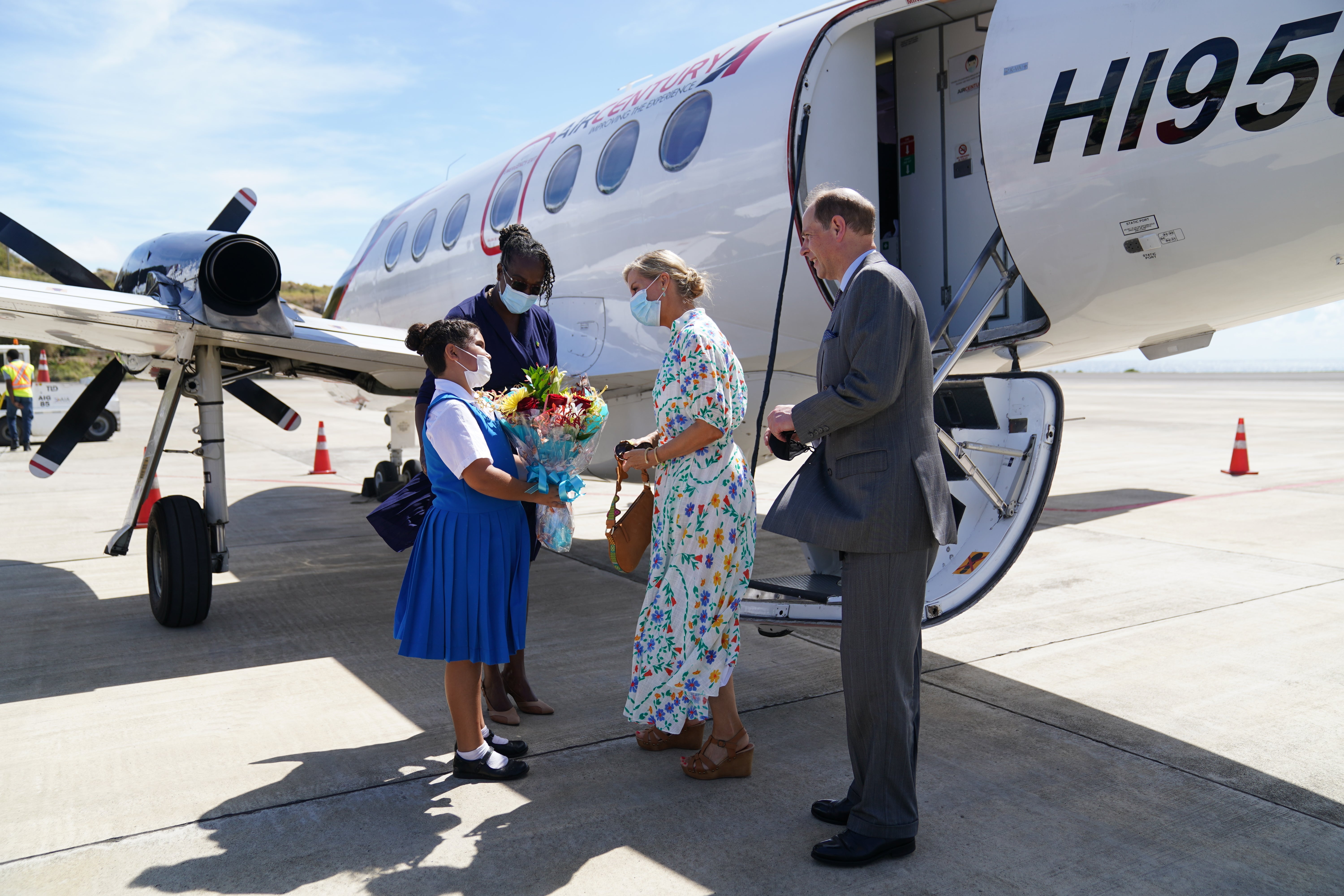Slavery reparations campaigner ‘disappointed’ at royal Grenada trip cancellation
Campaigners have renewed calls for slavery reparations as the Earl and Countess of Wessex postpone trip to Grenada on Caribbean tour.

Your support helps us to tell the story
From reproductive rights to climate change to Big Tech, The Independent is on the ground when the story is developing. Whether it's investigating the financials of Elon Musk's pro-Trump PAC or producing our latest documentary, 'The A Word', which shines a light on the American women fighting for reproductive rights, we know how important it is to parse out the facts from the messaging.
At such a critical moment in US history, we need reporters on the ground. Your donation allows us to keep sending journalists to speak to both sides of the story.
The Independent is trusted by Americans across the entire political spectrum. And unlike many other quality news outlets, we choose not to lock Americans out of our reporting and analysis with paywalls. We believe quality journalism should be available to everyone, paid for by those who can afford it.
Your support makes all the difference.A slavery reparations campaigner has branded the Earl and Countess of Wessex’s “British oligarchs” and said he was “disappointed” their visit to Grenada was cancelled.
Edward and Sophie postponed their trip to Grenada – meant to be part of a seven-day tour of the Caribbean to mark the Queen’s 70-year reign.
The pair on Saturday received a red carpet welcome as they landed in in St Vincent and the Grenadines but, despite the pomp and ceremony, the royal tour has been met with renewed calls for reparations for the slave trade and Britain’s colonial past.
Arley Gill, chairman of the Grenada’s National Reparations Committee – which is calling for a formal apology for slavery and wide-ranging reparations, said he and others requested an audience with the royal couple via the Governor-General but was “disappointed” the Grenada portion of their tour was cancelled.
Campaigners had hoped to deliver a plan for reparations and discuss the topic face to face, although a meeting was never set up.
“We, of the National Reparations Committee, on learning that we had these British oligarchs visit Grenada, wrote to the Governor-General, the Queen’s representative here in Grenada to have an audience with the Earl and Countess of Wessex to discuss the topic of reparations”, he said.
“So in a way we are a bit disappointed that they are not coming so we’re not able to have that conversation with them.”
Mr Gill said he and others had also planned to stage protests to draw attention to the issue of reparations and said he stands by comments made to The Times that they would have made the visit “rather uncomfortable”.
“As you will have observed in the visit of Prince William and Kate Middleton in Jamaica, I don’t think that they were comfortable at all, I don’t think that the British monarchy is comfortable with the subject of reparations to begin with because thus far they have failed to apologise to us, to black people, to African descendants, for the role that they played in the Atlantic slave trade and slavery,” he added.
The negative response to the royal visit comes after the Duke and Duchess of Cambridge encountered protests demanding reparations during their tour of the region in March.
The couple were also accused of being “tone deaf” after they were seen shaking hands with crowds behind a wire mesh fence in Kingston, Jamaica, and images of the pair riding in the back of a Land Rover were denounced as harking back to colonial days.
William expressed “profound sorrow” at the forced transportation of millions of people from Africa to the Caribbean and North America and echoed the words of his father, the Prince of Wales, as he described the slave trade as an “appalling atrocity” that “stains our history” in a speech during the visit.
But the rhetoric has been blasted as “phony sanctimony” by campaigners who asked the “mantra” not to be repeated in an open letter to the earl and countess.
It comes amid a growing anti-colonial sentiment across the Caribbean.
Barbados replaced the Queen as head of state in November and Jamaica’s prime minister Andrew Holness has also suggested his country may be the next to become a republic.
The Duke of Cambridge also previously acknowledged the monarchy’s days in the Caribbean may be numbered as he stated the future “is for the people to decide upon”.
The British royal family were involved in the transportation and selling of people for profit for centuries with Elizabeth I becoming involved in the lucrative dealings of John Hawkins, one of Britain’s first slave traders in the 16th century.
When his first adventure proved successful and his ships returned laden with goods, she supported his future expeditions by providing vessels to carry the human cargo.
The connections between the royal family and slavery continued with Charles II, who encouraged the expansion of the slave trade.
He granted a charter to a group of men, the Royal Adventurers, who later became the Royal African Company – and the monarch and the Duke of York invested their private funds in the venture.